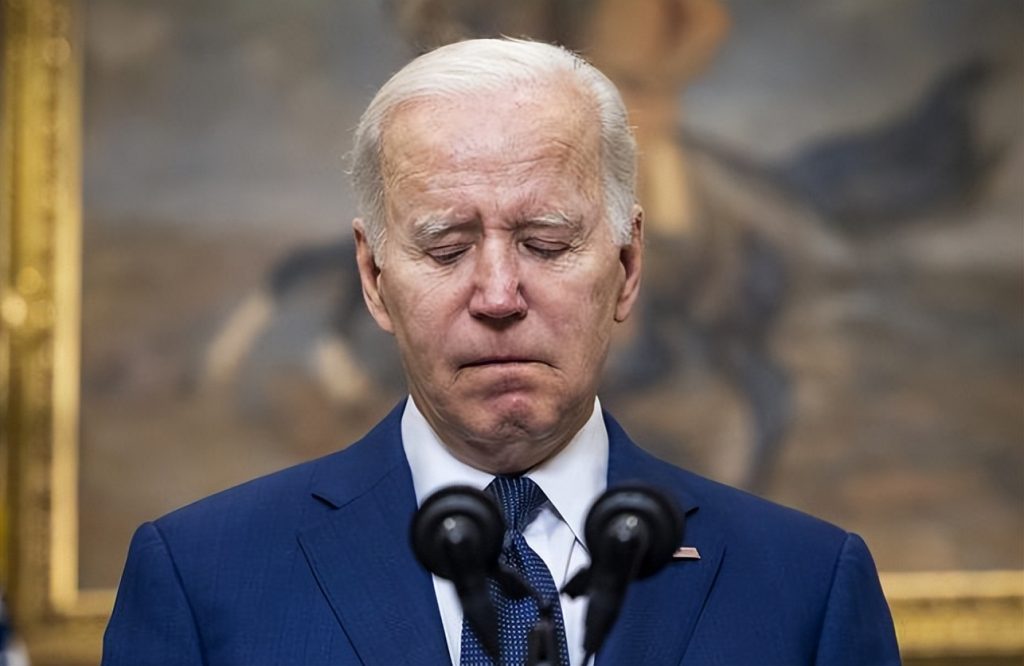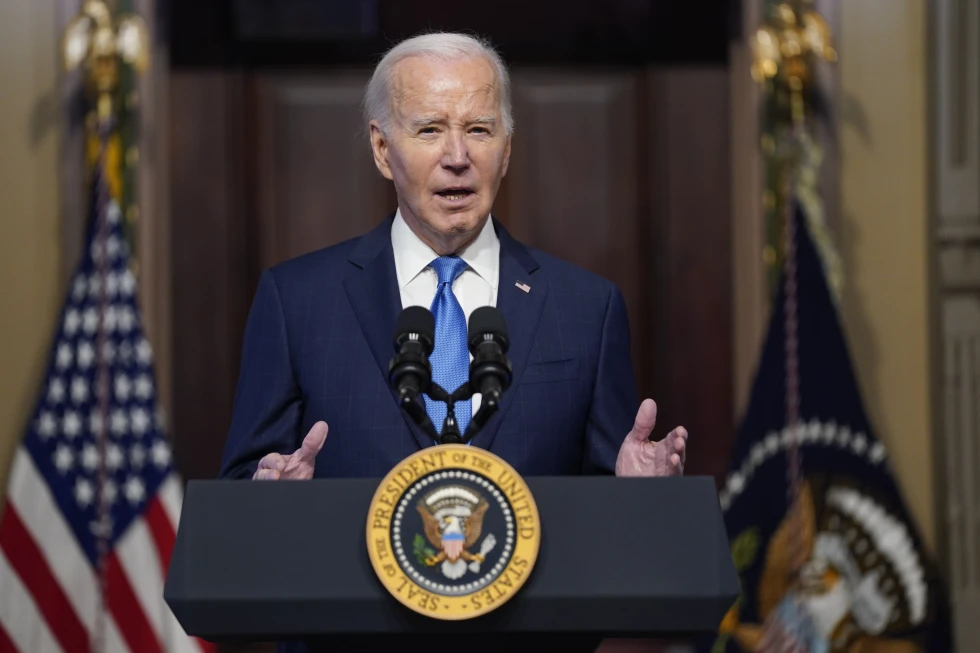President Joe Biden is set to visit Wisconsin on Wednesday to highlight the surge in federal government support for Black-owned small businesses during his White House tenure.
The visit will also serve as an opportunity for the president to showcase his administration’s efforts to ramp up investment in distressed communities.
The Small Business Administration (SBA) has backed 4,700 loans valued at $1.5 billion to Black-owned businesses in the last fiscal year.
Under the Biden administration, the SBA has more than doubled the number and total dollar amount of loans to Black-owned small businesses.
The share of the SBA’s loans going to minority-owned businesses has also increased from 23% to over 32% since 2020.
Joelle Gamble, the deputy director of the White House National Economic Council, said that the president’s visit to the Wisconsin Black Chamber of Commerce will give Biden a chance to show “how Bidenomics is driving a Black small business boom.”
The surge in support for Black-owned small businesses is a significant step towards addressing the racial wealth gap in the United States.
Historically, Black-owned businesses have faced significant barriers to accessing capital and resources, making it difficult for them to grow and thrive.
The Biden administration’s efforts to increase investment in these businesses could have a significant impact on the economic well-being of Black communities across the country.
The visit to Wisconsin is also an opportunity for the president to highlight his administration’s broader efforts to support distressed communities.
The COVID-19 pandemic has had a disproportionate impact on low-income communities and communities of color, exacerbating existing inequalities.
The Biden administration has made it a priority to address these disparities through its American Rescue Plan, which includes significant funding for small businesses and communities in need.
Overall, the surge in support for Black-owned small businesses and the Biden administration’s efforts to invest in distressed communities are positive steps towards building a more equitable and just economy.
The president’s visit to Wisconsin is an opportunity to highlight these efforts and to continue pushing for progress towards a more inclusive and prosperous future for all Americans.
The 2020 election in the United States was a significant event, particularly in the state of Wisconsin, where President Joe Biden secured a hard-fought victory over former President Donald Trump.
As the 2024 election approaches, Wisconsin is once again poised to play a crucial role in determining the outcome, with Trump emerging as a leading contender for the GOP presidential nomination.
In his efforts to secure support for a potential reelection bid, President Biden has been actively engaging with American voters, especially in Wisconsin and other key states.
This engagement comes at a time when public sentiment regarding his economic policies has been less than favorable, as reflected in various polls.
Despite the fact that the unemployment rate remains at historically low levels and inflation has decreased significantly over a relatively short period, the president continues to grapple with low approval ratings in the realm of economic management.
One of the focal points of Biden’s outreach has been his administration’s ambitious initiative to replace the nation’s lead water service lines within a span of 10 years.
This initiative is designed to ensure that communities across the country, including the city of Milwaukee, have access to safe and clean drinking water.
The president has positioned this lead-pipe replacement project as a transformative opportunity that could significantly reduce the risk of lead exposure, particularly in environments such as schools, child care centers, and more than 9 million homes in the United States that rely on lead pipes for water supply.
Additionally, the administration has emphasized the potential of this initiative to generate a substantial number of well-paying jobs, particularly within the framework of labor unions, thereby contributing to economic growth and stability across the nation.
Biden’s focus on addressing the issue of lead contamination in water systems reflects a broader commitment to public health and environmental sustainability.
By prioritizing the replacement of lead pipes, the administration is not only seeking to mitigate the immediate health risks associated with lead exposure but also to lay the groundwork for long-term improvements in public health infrastructure.

Furthermore, the emphasis on job creation through this initiative underscores the administration’s commitment to fostering economic opportunities that are both impactful and sustainable.
As the political landscape continues to evolve, the dynamics of the 2024 election are likely to be shaped by a multitude of factors, including the outcomes of policy initiatives, public sentiment, and the strategies adopted by potential candidates.
Wisconsin’s historical significance as a battleground state, combined with the broader implications of economic policies and infrastructure initiatives, underscores the pivotal role that the state is poised to play in shaping the future of American politics.
In conclusion, the 2020 election in Wisconsin was emblematic of the state’s pivotal role in national politics, and the upcoming 2024 election is poised to once again underscore the significance of Wisconsin in shaping the trajectory of the nation.
President Biden’s efforts to engage with voters, address economic concerns, and champion initiatives such as the lead-pipe replacement project reflect a broader commitment to addressing critical issues and shaping a path forward that prioritizes public health, economic prosperity, and environmental sustainability.
As the political landscape continues to unfold, Wisconsin’s position as a key battleground state and the outcomes of policy initiatives will undoubtedly hold profound implications for the future of the United States.
The passage highlights the significant impact of the president’s $1 trillion infrastructure legislation, which was passed in 2021.
One of the key components of this legislation is the allocation of $15 billion for replacing lead pipes, a crucial initiative for ensuring clean and safe drinking water for communities across the United States.
In a show of support for this important endeavor, the president is set to make an appearance alongside the owner of Hero Plumbing, a Black-owned business in Milwaukee that is actively involved in the replacement of lead pipes and stands to benefit from the infrastructure law.
Furthermore, the president is expected to announce that the Grow Milwaukee Coalition has been named as one of the 22 finalists for the Commerce Department’s “Recompete” pilot program.
This program, which is funded by Biden’s CHIPS and Science Act, aims to channel $190 million in federal funding towards job creation and the growth of small businesses in economically distressed areas of the country.
The specific focus of the Grow Milwaukee Coalition’s proposal is the revitalization of Milwaukee’s 30th Street Industrial Corridor.
This ambitious plan underscores the administration’s commitment to fostering economic development and revitalization in communities that have been disproportionately impacted by economic challenges.
The inclusion of initiatives such as the replacement of lead pipes and the support for local businesses through programs like the “Recompete” pilot program reflects a comprehensive approach to addressing critical infrastructure needs and promoting economic resilience.
By targeting key areas for investment and growth, the administration is working to create opportunities for sustainable development and prosperity in communities that have historically faced systemic barriers to progress.
The significance of these initiatives extends beyond their immediate impact on infrastructure and economic development.
They also serve as a testament to the administration’s commitment to equity and inclusion, as evidenced by the support for minority-owned businesses and the focus on addressing environmental and public health concerns related to lead contamination in water supply systems.
In conclusion, the president’s infrastructure legislation and the associated programs and initiatives represent a concerted effort to address pressing challenges while laying the groundwork for long-term prosperity and sustainability.
By prioritizing investments in critical infrastructure, supporting local businesses, and promoting community revitalization, the administration is working to create a more resilient and equitable future for all Americans.

This essay has highlighted the far-reaching implications of the president’s infrastructure legislation and the associated programs and initiatives, underscoring their potential to drive positive change and foster inclusive growth.
As the nation looks towards a future defined by resilience and opportunity, these efforts stand as a testament to the power of strategic investment and collaborative action in shaping a more prosperous and equitable society.
